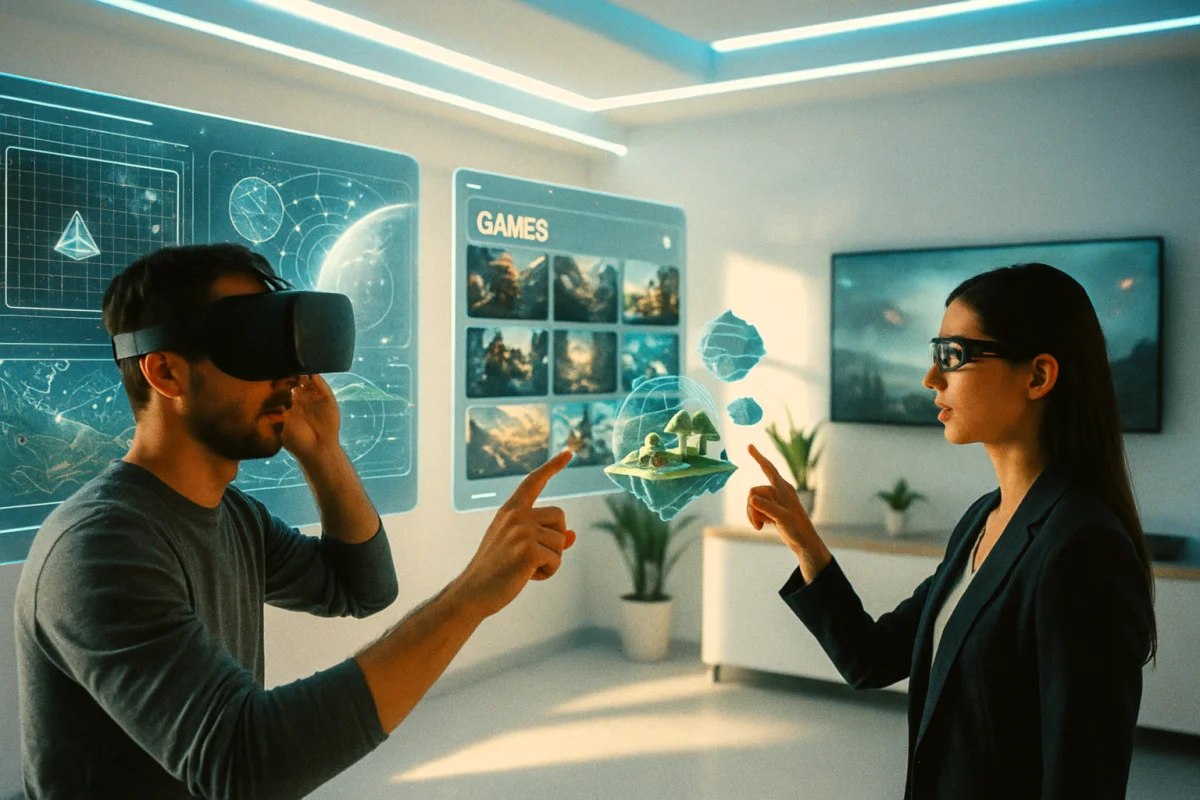The Future of Gaming: How AR, VR, and Social Experiences Are Transforming the Industry
By 2025, the gaming industry has gone far beyond simple entertainment. Rapid technological progress — especially AR (Augmented Reality), VR (Virtual Reality), and social platforms — is turning games into experiences that combine education, emotions, and new forms of human interaction. These trends are setting new standards and redefining the very future of gaming.

AR: Merging Real and Virtual Worlds
AR technologies create a hybrid experience where real-world environments blend seamlessly with virtual objects. For example, a player can transform their own room into a battlefield or an educational space. This approach is not only fun but also introduces new ways of learning — embedding interactive virtual elements into everyday life increases both engagement and participation.
VR: Full Immersion Into New Worlds
VR games in 2025 provide such detailed and realistic environments that they feel nearly indistinguishable from real life. Modern VR headsets and controllers synchronize body movements with in-game characters, offering players full control and a powerful emotional connection to their virtual worlds. This level of immersion is redefining expectations of what gaming can be.
Social Experiences: Games as Community Spaces
Today’s players place high value on social interaction. Games that blend multiplayer modes, social networking features, and collaborative missions are building virtual communities. Here, players don’t just compete — they form friendships, build teams, and develop shared cultures. Games have become not only entertainment but also an essential part of social identity.
Innovative Combinations
Integrating AR, VR, and social platforms takes gaming to new heights. Imagine a VR player connecting in real-time with friends using AR interfaces. This hybrid model creates a unified experience, merging different technologies into a single, fluid interaction that feels futuristic yet natural.
Education and Professional Applications
Beyond entertainment, these technologies are widely used in education and professional training. Simulations, virtual workshops, and collaborative platforms are reshaping how knowledge is delivered to the next generation. From learning history through VR to conducting scientific experiments in AR, these methods prove far more effective than traditional approaches.
Conclusion
The future of gaming is undeniably tied to AR, VR, and social experiences. These technologies transform games into deeper, more emotional, and interactive processes that surpass entertainment. They are establishing new cultural standards, where players are not just consumers but creators and community builders. In this diversity and innovation lies the true power of gaming’s future.
✍ Article Author
- Registered: 26 July 2025, 15:34




 Silent Cat 🐾
Silent Cat 🐾